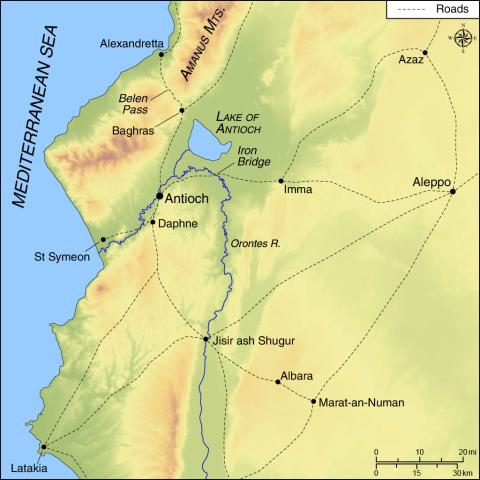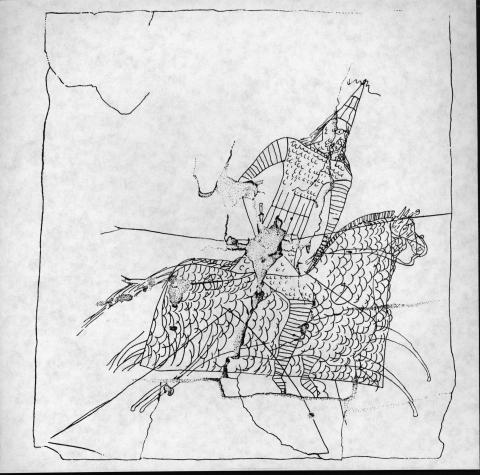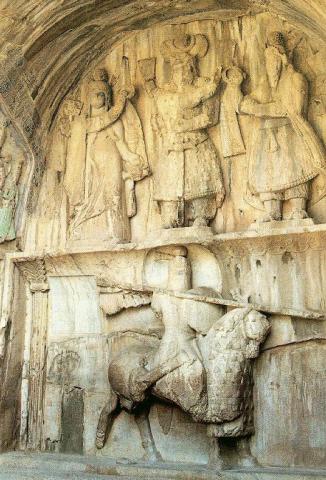Kerbogah Tries to Retake Antioch
[9.21.1] Curbaram prīnceps mīlitiae soldānī Persiae: dum adhūc esset Chorosānum, quantōcius Cassiānus ammiralius Antiochiae lēgātiōnem eī mīsit, quō sibi succurreret in tempore oportūnō—quoniam gēns fortissima Francōrum eum impedītum graviter obsīdēbat in Antiochiā—et, sī adiūtōrium eī impendēret, urbem Antiochēnam illī trāderet aut eum maximō mūnere dītāret; cumque iam habuisset maximum exercitum Turcōrum, ex longō collēctum tempore, et licentiam Chrīstiānōs occīdendī accēpisset ā Caliphā—illōrum apostolicō—īlicō inchoāvit iter longae viae Antiochīae.
Hierosolimitānus ammiralius in adiūtōrium cum suō exercitū vēnit. Rēx Damascī illūc vēnit, cum maximā gente. Īdem vērō Curbaram congregāvit innumerās gentēs pāgānōrum, vidēlicet Turcōs, Arabās, Saracēnōs, Pūblicānōs, Azimītās, Curtōs, Persās, Agulānōs, et aliās multās gentēs innumerābilēs. Et Agulānī fuērunt numerō tria mīlia; quī neque lanceās neque sagittās neque ūlla arma timēbant, quia omnēs erant undique coopertī ferrō et equī eōrum, ipsīque nōlēbant in bellum ferre arma nisi sōlummodo gladiōs.
notes
vocabulary
soldānus –ī, m.: sultan (ML)
ammiralius –ī, m.: emir
adhūc: still
quantōcius: as quickly as possible
impediō impedīre impedīvī (impendiī) impedītum: to obstruct (CL); to blockade (ML)
adiūtōrium –ii, n.: assistance, support
impendō impendere impendī impensum: to pay out, spend, devote (resources, etc.)
dītō (1): to enrich
īlicō: on the spot, there and then
cooperiō cooperīre coopeuī coopertum: to cover



